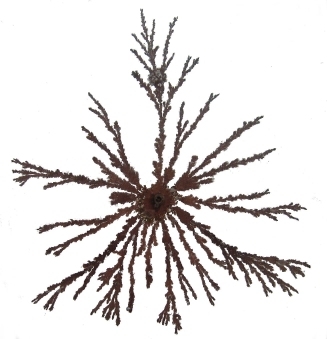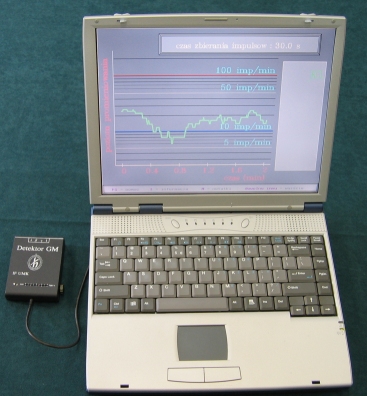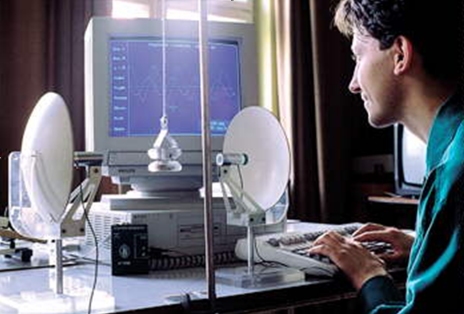Head: Dr. Józefina Turło,
Dr. Katarzyna
Przegiętka, Dr. Grzegorz Osiński,
Elżbieta D±bkowska, M.Sc., Andrzej Karbowski, M.Sc., Krzysztof
Służewski, M.Sc.
The Physics Education Group
has been established in order to prepare physics students for
elementary and secondary school teacher careers. The activity of the
members of this group involves a faculty-based programme of workshops,
seminars and lectures as well as supervised teaching practices in
different types of schools. A range of courses devoted to various
aspects of physics education is offered to students of physics and
astronomy, postgraduate students as well as practising teachers.
The group members especially are involved in the development of ICT skills of pre-service and in-service courses participants.
The students - teachers to be are exploring properties of microwaves in the laboratory
In 1988 the Teacher’s Training
College at Physics and Astronomy Faculty was established to prepare
students for two-subject elementary school teacher careers (with the
core subject: mathematics-physics and physics-chemistry) in three-year
vocational courses. Accordingly, a modified course matching the special
needs of this group of students has been also designed.
In the years 1997-2001 we
played a role of contractor and co-ordinator of the TEMPUS programme
on: “Modernisation of two-subject teacher education in physics and
mathematics”. Within the frames of this programme the collaboration
between the Physics Education Laboratory and the European Union
universities (Cambridge (UK), London (UK), Southampton (UK), Leeds
(UK), Poitiers (F), Amsterdam (NL), Oldenburg (D), Kiel (D),
Aarhus (DK) has been established. Both, the staff members and
student activities have been provided within these schemes. As a result
computer assisted learning techniques and multimedia capabilities have
been up-dated and developed enabling applications in various fields of
physics education, both in the traditional topics and the new
ones. Thus, in particular, the interactive computer programmes using
new visualisation methods has been elaborated to show the result of
ionising radiation investigations in the environment and to introduce
some new topics such as items of chaos and fractal theories (e. g. the
notions of strange attractor, bifurcation, growth models, fractal
music, fractal dimension, etc.) The example of fractal, produced
by electro-sedimentation method in our Laboratory is shown in the
picture. Its fractal dimension was estimated by students
as 1.84 with the accuracy of 1.1%.

- Participation in projects
supervised and supported by the Polish Ministry of Education,
concerning mostly IT based education (e. g. Project RRI. 14 on:
„Introducing of Information Technology to Teaching and Research at the
University Level”, „Microcomputer Based Physics Laboratory, "The
Internet Network of Teachers" collaborating on new effective MBL
applications for science education at the secondary school level) and
by the National Scientific Research Council on: „New Computer Aided
Physics Experiments”.
- Within these projects, two solutions are of the great importance for us:
| - elaboration of hardware and software (now Windows version) for
computer aided ionising radiation investigations (which we are also
exporting), |
- construction of continuous wave, ultrasonic motion detector for the
measurements of the positions of two independently moving objects in
the real time. |

|

|
- Active participation in
preparation of educational TV programs within the VIDEO-SCHOOL series,
competitions for teachers and students, exhibitions of educational aids
and various demonstrations of physical experiments for teachers and
students as well as writing expertises on textbooks, educational aids
and multimedia resources.
- Organisation of the international and national conferences as:
- International Group on Physics Education (GIREP) '91 on "Teaching about reference frames:from Copernicus to Einstein",
- „Computer aided experiments in physics education”, 1993-1999,
- "Science and mathematics teaching for the information society", 2000,
- Polish Association of Science Teacher's annual meetings, 1994-2004.
- Collaboration with Polish
science teachers being the co-ordinator of international educational
programme: Science Across Europe (within Science Across the World
programme).
- Being a partner of EU projects:
- SOCRATES/STEDE on: "Science Teacher Education Development in Europe", co-ordinator: University of Louvain, Belgium.
- SOCRATES/GRUNDTVIG on:
"Auto-formation et Auto-évaluation: Compétences et
Connaissances pour des Etudes Scientifiques Supérieures"
co-ordinator: Université de Provence, Marseille, France.
- SOCRATES/COMENIUS - EUCISE
on: "European Union Co-operation on Integrated Science Education",
co-ordinator: Institut für die Pedagogik der
Naturwissenschaften, Kiel, Germany.
- SOCRATES/COMENIUS/EXPRESSTRAIN
TEWISE 2.1 on: "Training Experimental Work in Science Education for
teachers and teacher students", co-ordinator: Pedagogical
Institute Carinthia-Department for Grammar School Education,
Klagenfurt, Austria.
- SOCRATES/IP(Intensive
Programme)/AIDA on: "Attention-Interest-Desire-Action",
co-ordinator: Pedagogische Akademie des Bundes in Wien, Austria.
- SOCRATES/IP(Intensive
Programme)/TFPC on: "Toward Fascinating Physics and Chemistry", co-ordinator: Pedagogische Akademie des Bundes in Wien, Austria.
- SOCRATES/COMENIUS 2.1 EU-TRAIN
on: "EU Train: European Training for student teachers in science"., co-ordinator: Helsingin Yliopisto (Uniwersytet Helsiński), Finlandia.
- SOCRATES/COMENIUS 2.1 EU-ISE
on: “Effective Use of ICT in Science Education“, co-ordinator: Univerzita Komenskeho, Bratislava, Slovakia.
- SOCRATES/MINERVA EU-HOU (Hands-On Universe, Europe) on: "Bringing frontline interactive astronomy to the classroom"., co-ordinator: The University Pierre & Marie Curie, Paris, France.
Furthermore, the group
members are also involved in the educational activities for teachers
as: Postgraduate Course on Physics and IT, Postgraduate Course on
Science, Postgraduate Course on Environmental Studies,
Postgraduate Course on IT in Science Education.
|


 General
Info
General
Info